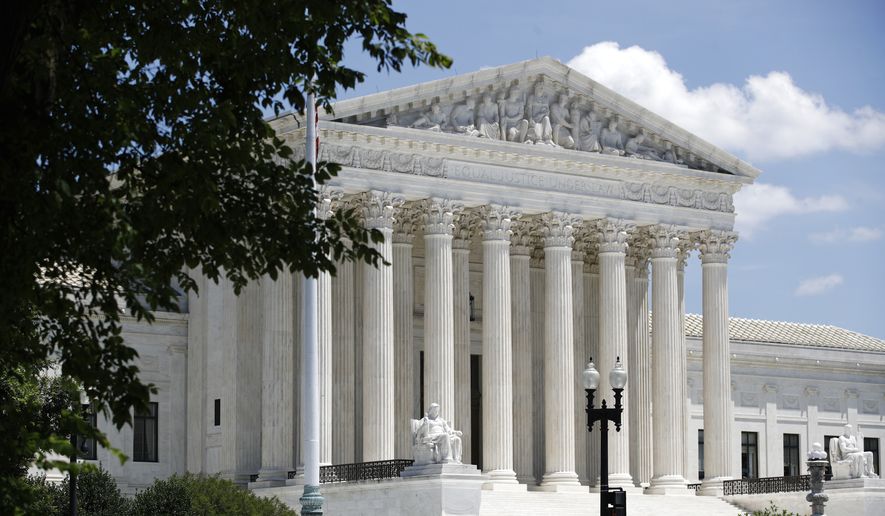Supreme Court justices from both wings of the bench on Wednesday expressed sympathy for a former council woman in Castle Hills, Texas, who says she was arrested for pushing for the removal of the city manager.
Sylvia Gonzalez lost her city council seat after she was arrested for misplacing a petition she circulated criticizing the city manager and calling for his removal.
Ms. Gonzalez was put in jail for a day after she misplaced the petition in her binder at a council meeting for a few minutes. The petition was discovered at the end of the meeting, and officials charged her with attempting to conceal a government document that she had spearheaded.
The district attorney eventually dropped the charges. But Ms. Gonzalez lost her council seat representing Castle Hill, a town of just under 4,000 people. Her mugshot was circulated on local news.
“This is kind of a random crime she was charged with here,” said Justice Amy Coney Barrett, a Trump appointee.
“Some warrants are false,” said Justice Sonia Sotomayor, an Obama appointee.
Ms. Gonzalez said she believes she was targeted because city leaders wanted to replace her with their friend, the incumbent whom she had defeated in an election in which she promised to work to replace the city manager.
Her lawyer, Anya Bidwell, told the high court during arguments Wednesday that had it not been for animus against Ms. Gonzalez, she wouldn’t have been arrested.
“Political retaliation is dangerous. The First Amendment should mean something,” the attorney said.
The legal dispute began after Ms. Gonzalez won an election over an incumbent four years ago on the promise to unseat the city manager, claiming he was involved in corrupt practices. She organized a “FIX OUR STREETS” petition and moved to reinstate the previous city manager.
At her first council meeting, a constituent presented the petition, which caused chaos. The meeting had to be continued to another day, and during the debate, Ms. Gonzalez inadvertently placed the petition in her binder, according to her court papers.
Mayor Edward Trevino and other individuals launched an investigation and eventually had her arrested on a misdemeanor charge of “intentionally destroy[ing], conceal[ing], remov[ing] or otherwise impair[ing] the verity, legibility or availability of a government record.”
Ms. Gonzalez said in court that the statute had never been used in the past 10 years to jail someone for any sort of similar conduct. She found that in Bexar County, Texas, the law had been used against those falsifying green cards, concealing evidence of murder and counterfeiting government records and Social Security numbers.
The 5th U.S. Circuit Court of Appeals ruled against Ms. Gonzalez because she couldn’t point to an example of another individual who was targeted for similar political conduct and misplacing a similar petition or government document.
The three-judge panel reasoned that for her to be able to sue the individuals, she needed to show another person — like herself — who was engaged in the same kind of actions but not arrested in order to reveal unequal treatment.
Justice Elena Kagan, an Obama appointee, noted during oral arguments that she thought the 5th Circuit’s reasoning was quite narrow.
“The 5th Circuit seemed to have a very narrow view,” she said. “According to court records, other circuit courts don’t require exact proof or other examples of retaliatory and differential treatment.”
In court records, lawyers for Mr. Trevino and the other city officials argued the investigation into tampering with a government record was thorough.
Lisa Blatt, who argued for the city officials on Wednesday, noted a neutral judge issued the arrest warrant for Ms. Gonzalez, so that doesn’t support her retaliatory arrest claim.
“Throughout history, probable cause has foreclosed retaliatory arrest suits,” she said.
Ms. Blatt also said video evidence clearly showed Ms. Gonzalez concealing and moving the document.
The case is Sylvia Gonzalez v. Edward Trevino et al. A decision is expected by the end of June.
• Alex Swoyer can be reached at aswoyer@washingtontimes.com.




Please read our comment policy before commenting.